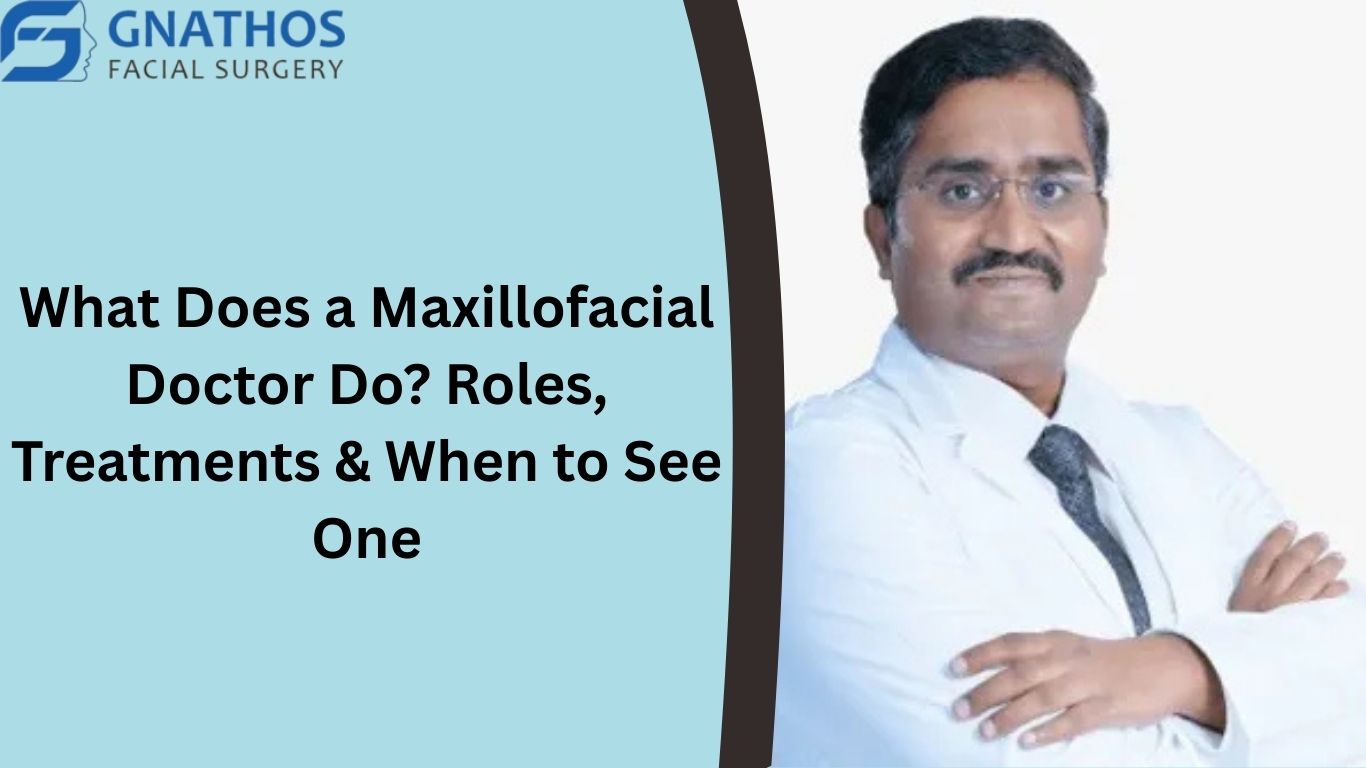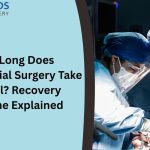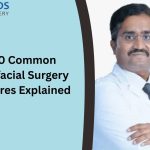You’ve probably heard the term “maxillofacial doctor” or “oral and maxillofacial surgeon” thrown around, especially if you’ve had complex dental issues, jaw pain, or facial trauma. But if you’re like most people, you might be thinking, “That sounds important, but what does a maxillofacial doctor do, exactly?” It’s a great question, because while their work is incredibly specialized and vital, it’s not always widely understood by the general public.
Unlike a general dentist who focuses on teeth and routine oral care, or a physician who handles general health, a maxillofacial doctor operates in a fascinating space where dentistry meets medicine and surgery. They are the go-to experts for a wide array of conditions affecting the face, mouth, and jaws. Today, we’re going to pull back the curtain and give you a comprehensive look at what does a maxillofacial doctor do – their extensive training, their diverse roles, the types of treatments they provide, and most importantly, when you should consider seeing one. Get ready to have your mind opened to a truly remarkable medical and dental specialty!
Need Expert Maxillofacial Care?
A maxillofacial doctor diagnoses and treats jaw, face, and oral conditions with advanced surgical and non-surgical care. Get the right treatment for lasting relief.
Consult a SpecialistWho is a Maxillofacial Doctor? A Dual-Trained Specialist
Let’s start by clarifying the terminology. “Maxillofacial doctor” is a common, often abbreviated, way to refer to an Oral and Maxillofacial Surgeon (OMS). These are highly specialized surgeons who have undergone rigorous and extensive training that uniquely positions them at the intersection of dentistry and medicine.
Here’s a breakdown of their training:
- Dental School: They first complete a full dental degree (DDS or DMD), just like any general dentist. This foundational training gives them an in-depth understanding of oral anatomy, diseases of the teeth and gums, and basic dental procedures.
- Surgical Residency: After dental school, they embark on a demanding 4-6 year hospital-based surgical residency program. This residency is where they truly become surgeons, receiving comprehensive training in:
- Anesthesia: Learning to safely administer various types of anesthesia.
- General Surgery: Gaining experience in surgical principles, patient management, and sterile techniques.
- Internal Medicine: Understanding systemic diseases and their impact on surgical patients.
- Emergency Medicine: Managing medical emergencies.
- Plastic Surgery: Learning techniques for facial aesthetics and reconstruction.
- Otolaryngology (ENT): Gaining expertise in ear, nose, and throat conditions.
- Trauma Surgery: Developing skills in managing severe injuries.
- Orthopedics: Understanding bone healing and fracture management.
- And, of course, intensive training in maxillofacial surgery, focusing specifically on the head, neck, face, jaws, and oral cavity.
Some OMS programs even include earning a medical degree (MD) in addition to their dental degree, making them truly dual-qualified. This extensive training makes them uniquely equipped to handle complex issues that involve both dental and medical aspects of the head and neck. So, when you ask, “what does a maxillofacial doctor do,” the answer starts with: they are highly skilled surgeons with a vast scope of practice.
What Does a Maxillofacial Doctor Do? Their Diverse Roles and Treatments
The scope of an Oral and Maxillofacial Surgeon is incredibly broad, covering everything from routine tooth extractions to complex facial reconstruction. Let’s break down their main areas of expertise:
1. Wisdom Tooth Extraction and Complex Dental Extractions:
- Role: This is perhaps the most common reason people encounter an OMS. While a general dentist can extract simple teeth, an OMS specializes in removing impacted wisdom teeth (teeth that are stuck beneath the gums or bone) and other complicated extractions, often requiring surgical techniques.
- What they do: They assess the tooth’s position, nerve proximity, and bone structure using advanced imaging (like 3D CBCT scans), perform the extraction often under various forms of sedation (local, nitrous oxide, IV sedation, or general anesthesia), and manage post-operative complications.
2. Dental Implants and Bone Grafting:
- Role: Maxillofacial doctors are experts in the surgical placement of dental implants – artificial tooth roots that replace missing teeth. They also perform bone grafting procedures when there isn’t enough natural bone to support an implant.
- What they do: They meticulously plan implant placement using 3D imaging, perform the surgical insertion of the implant into the jawbone, and may perform sinus lifts or ridge augmentations (types of bone grafts) to create sufficient bone volume.
3. Corrective Jaw Surgery (Orthognathic Surgery):
- Role: This is a major area of specialization. OMSs perform surgery to correct significant irregularities and misalignments of the jawbones and facial bones. This is often done in conjunction with orthodontic treatment.
- What they do: They correct issues like underbites, overbites, open bites, crossbites, and facial asymmetry that cannot be resolved with braces alone. They precisely cut and reposition sections of the upper jaw (maxilla), lower jaw (mandible), or chin (genioplasty) to improve bite function, breathing, speech, and facial aesthetics. This is a definitive answer to what does a maxillofacial doctor do when it comes to changing the very structure of your face.
4. Facial Trauma Surgery:
- Role: OMSs are often the primary specialists in emergency rooms for treating severe facial injuries. They reconstruct facial bones and soft tissues after accidents, falls, assaults, or sports injuries.
- What they do: They manage fractures of the jaw, cheekbones, nose, eye sockets, and forehead, often using plates, screws, and wires to stabilize broken bones. They also repair facial lacerations, nerve damage, and soft tissue injuries to restore function and appearance.
5. Temporomandibular Joint (TMJ) Disorders:
- Role: Many OMSs specialize in the diagnosis and treatment of conditions affecting the TMJ – the hinge-like joints connecting your jaw to your skull.
- What they do: They manage a range of TMDs, from conservative treatments (splints, injections, physical therapy referrals) to minimally invasive procedures (arthrocentesis, arthroscopy) and complex open-joint surgery (e.g., disc repositioning, joint replacement for severe arthritis or trauma). This is another key answer to what does a maxillofacial doctor do.
6. Oral Pathology:
- Role: They diagnose and treat a wide variety of diseases affecting the oral cavity and maxillofacial region, including cysts, tumors, and other lesions.
- What they do: They perform biopsies to identify suspicious lesions, and if a condition is cancerous or benign but problematic, they perform surgical removal. They are also involved in managing infections of the jaws and face.
7. Pre-Prosthetic Surgery:
- Role: Preparing the mouth for dentures or other prosthetic devices.
- What they do: This can involve removing excess bone or gum tissue, smoothing sharp bone edges, or performing bone grafts to create a more stable foundation for dentures, ensuring a better fit and comfort.
8. Corrective/Cosmetic Facial Surgery (Beyond Trauma):
- Role: While their primary focus is often reconstructive and functional, many OMSs also perform elective cosmetic procedures to enhance facial aesthetics.
- What they do: This can include facial implants (e.g., chin, cheek), jawline contouring, soft tissue augmentation, and even procedures like rhinoplasty or blepharoplasty, depending on their individual training and focus.
9. Cleft Lip and Palate Surgery:
- Role: OMSs are often integral members of multidisciplinary teams treating children born with cleft lip and palate, working to correct these congenital conditions.
- What they do: They perform surgical repair of the lip and palate, and later, may perform jaw surgeries to correct associated facial and dental deformities as the child grows.
10. Anesthesia Administration:
- Role: A unique aspect of OMS training is their ability to safely administer all levels of anesthesia, from local anesthesia to IV sedation and general anesthesia, in their office setting or hospital.
- What they do: This allows them to perform complex procedures comfortably for the patient, a significant advantage.
Need Expert Maxillofacial Care?
A maxillofacial doctor diagnoses and treats jaw, face, and oral conditions with advanced surgical and non-surgical care. Get the right treatment for lasting relief.
Consult a SpecialistWhen to See a Maxillofacial Doctor: Signs You Might Need One
Given the extensive list of what what does a maxillofacial doctor do, here are common scenarios where your general dentist or physician might refer you to an OMS, or when you might consider seeking one out directly:
- Impacted Wisdom Teeth: Especially if they are causing pain, infection, or damage to adjacent teeth.
- Missing Teeth: If you’re considering dental implants to replace missing teeth.
- Chronic Jaw Pain or Clicking (TMJ Disorders): When conservative treatments haven’t worked, or if there’s suspected structural damage to the joint.
- Difficulty Chewing, Speaking, or Breathing: If these issues are related to jaw misalignment that braces alone cannot fix.
- Facial Asymmetry: If one side of your face or jaw is noticeably different from the other and affects your bite or appearance.
- Facial Trauma: After any significant injury to your face or jaws (car accident, sports injury, fall).
- Lumps or Bumps in Your Mouth or Jaw: Any suspicious lesions or persistent swelling in your oral cavity or on your face.
- Difficulty Wearing Dentures: If your mouth needs bone or gum reshaping to accommodate dentures better.
- Sleep Apnea: If it’s caused by a structural issue in your jaw or airway that might benefit from surgical correction.
- Congenital Defects: Such as cleft lip and palate.
The Collaborative Approach: Your Treatment Team
It’s important to remember that a maxillofacial doctor often works as part of a team. For example:
- Orthodontist: For corrective jaw surgery, the OMS and orthodontist work hand-in-hand for years to prepare the teeth before surgery and fine-tune the bite afterward.
- General Dentist: Your OMS will collaborate with your general dentist for comprehensive care, especially for dental implant restoration or general oral health management.
- Other Physicians: For facial trauma or complex medical conditions, the OMS will coordinate care with emergency room doctors, ENTs, neurologists, or plastic surgeons.
This collaborative approach ensures you receive the most holistic and effective treatment for your specific needs.
Need Expert Maxillofacial Care?
A maxillofacial doctor diagnoses and treats jaw, face, and oral conditions with advanced surgical and non-surgical care. Get the right treatment for lasting relief.
Consult a SpecialistWhy Choose a Maxillofacial Doctor? The Advantage of Expertise
When you’re trying to figure out what does a maxillofacial doctor do, it boils down to specialized surgical expertise in a very delicate and functional part of your body. Their dual training allows them to understand both the dental and medical aspects of your condition. This means they can:
- Provide a Comprehensive Diagnosis: They see the bigger picture, considering not just your teeth, but your jawbones, muscles, nerves, and overall facial structure.
- Offer a Full Spectrum of Treatment Options: From conservative management to complex reconstructive surgery.
- Manage Anesthesia Safely: Providing a comfortable and pain-free experience for procedures ranging from simple extractions to major surgeries.
- Handle Complex Cases: They are trained for the most challenging surgical scenarios in the head and neck.
For any condition affecting your facial bones, jaws, or oral cavity that extends beyond routine dental care, an Oral and Maxillofacial Surgeon is typically the most qualified specialist.
Finding Your Maxillofacial Doctor: Trusting the Experts
Now that you have a clearer idea of what does a maxillofacial doctor do, you understand why choosing the right one is paramount. You want a specialist with extensive experience, advanced training, and a compassionate approach.
For expert care in a wide range of oral and maxillofacial conditions, from routine wisdom tooth extractions to complex jaw surgeries and facial trauma, seeking out a highly skilled professional is key. Specialists like Dr. Suresh are dedicated to providing precise diagnoses and effective, personalized treatment plans. To learn more about the comprehensive services offered by Dr. Suresh and to schedule a consultation for your specific needs, you can visit https://gnathosface.com/. Remember, when it comes to the intricate structures of your face and jaw, entrusting your health to a seasoned professional like Dr. Suresh is the smartest choice for optimal outcomes and your peace of mind.
Need Expert Maxillofacial Care?
A maxillofacial doctor diagnoses and treats jaw, face, and oral conditions with advanced surgical and non-surgical care. Get the right treatment for lasting relief.
Consult a SpecialistFrequently Asked Questions (FAQs)
Is a maxillofacial doctor the same as a dentist?
No, a maxillofacial doctor (Oral and Maxillofacial Surgeon) is a highly specialized surgeon who first completed dental school and then underwent an additional 4-6 years of rigorous hospital-based surgical residency training focused on the face, mouth, and jaws. While they are dentists, their scope of practice is significantly broader, involving complex surgical procedures that general dentists do not perform.
What is the most common reason people see a maxillofacial doctor?
The most common reason people see a maxillofacial doctor is for the extraction of impacted wisdom teeth. While general dentists can remove some teeth, maxillofacial surgeons specialize in complex extractions where teeth are stuck or impacted within the bone or gum tissue, often performing these procedures under various forms of anesthesia.
Do maxillofacial doctors perform cosmetic surgery?
Yes, many maxillofacial doctors perform a range of corrective and cosmetic facial surgeries. Their extensive training in facial anatomy, reconstruction after trauma, and orthognathic (jaw) surgery gives them a unique understanding of facial balance and aesthetics, allowing them to perform procedures like facial implants, jawline contouring, and even some eyelid or nose surgeries.
Can a maxillofacial doctor help with my chronic jaw clicking and pain?
Absolutely. Maxillofacial doctors are highly skilled in diagnosing and treating temporomandibular joint (TMJ) disorders, which often manifest as jaw clicking, popping, pain, or limited opening. They offer a spectrum of treatments from conservative therapies like splints and injections to minimally invasive procedures like arthrocentesis or arthroscopy, and in severe cases, open-joint surgery.
If I need dental implants, should I see a regular dentist or a maxillofacial doctor?
While some general dentists place implants, an Oral and Maxillofacial Surgeon is a specialist in the surgical placement of dental implants and associated bone grafting procedures. Their advanced training in jawbone anatomy, surgical techniques, and anesthesia makes them highly qualified, especially for complex cases, multiple implants, or when bone augmentation is required.
What makes a maxillofacial doctor uniquely qualified for jaw and facial issues?
A maxillofacial doctor’s unique qualification stems from their dual training in both dentistry and medicine, followed by a demanding surgical residency focusing specifically on the head, neck, face, and jaws. This comprehensive background allows them to diagnose and treat conditions that bridge both oral health and broader medical/surgical needs, offering a holistic and expert approach to complex facial and jaw problems.












